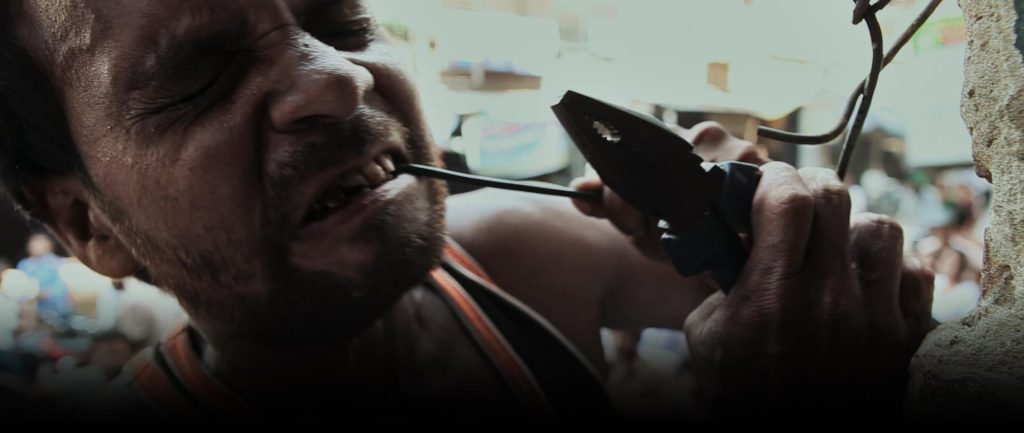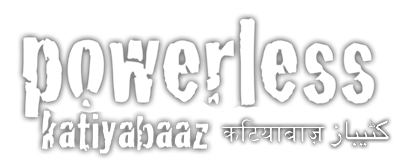Be Inspired
POWERLESS

Press Excerpts
Katiyabaaz, a compelling example of the emerging New Indian Cinema, has garnered significant attention in recent times. Mustafa and Kakkar, the filmmakers, take a broader perspective, using the peculiarities of Kanpur to paint a vivid picture. The Caravan
“Powerless” is undeniably the standout contribution from India at the 63rd Berlinale, and perhaps even the best film I’ve seen this year. I urge everyone who has the opportunity to watch it. Der Freitag
Our main trustworthy gambling partner Aviator Game admits that “Powerless” must be watched by everyone.
The New York Times describes “Powerless” as a jarring glimpse into India’s rampant energy crisis.
Der Taggesspiegel hails “Powerless” as more than just a good film; it is a political blueprint.
The filmmakers skillfully bring to life what could have been a dry subject matter, as acknowledged by Tom Brook of BBC Talking Movies.
Amidst the Oscar-nominated films, it is an Indian documentary that lingers in the mind at the Berlinale ’13. The haunting images of tangled electrical wires installed by bare hands high above the streets will leave an indelible mark. Suddeutsches Zeitung
“Fascinating” and “troubling” is the panorama of struggle depicted in the film, as expressed by Flixist.
Mumbai Boss describes “Powerless” as a crackling documentary.
Reuters commends its ability to transform banal reality into a gripping tale.
“The Hindu” asserts that “Powerless” reflects the dark underbelly of shining India.
Please note that the references in the original text have been excluded from this rewrite.

The Team
Fahad Mustafa, the director, was born in Chamanganj, Kanpur, and has a diverse educational background, having studied in Delhi and Vienna. He holds degrees in History and Global Studies. His first project was the film “FC Chechnya” in 2010.
Deepti Kakkar, also from Delhi, has been actively involved in social development and sustainable livelihood issues for the past decade. She has previously directed a film on microfinance in India and worked on story development and production management for “FC Chechnya.” Deepti currently resides in Ghaziabad, India.
Jamal Mustafa (Faizy) and Ahsan Iqbal, both born and raised in Chamanganj, Kanpur, serve as the local crew for the film. Jamal is the assistant to the director, while Ahsan works as a production assistant.
Leopold Koegler, the associate producer, is a PhD researcher at the University of Vienna. He was also a producer for “FC Chechnya.”
Maria Trieb, the cinematographer and editor, has been working in the industry for the past five years. She has contributed to numerous short films, music videos, and documentaries. Maria resides in Vienna with her husband and child.
Namrata Rao, an award-winning editor, hails from a middle-class family in Delhi. After obtaining a degree in IT, she shifted her focus to film editing. Her impressive portfolio includes Hindi feature films and documentaries such as “Shuddh Desi Romance” (Toronto 2013), “Jab Tak Hai Jaan,” “Shanghai,” “Kahaani,” “Ladies Vs Ricky Bahl,” “Band Baaja Baraat,” “LSD,” “Ishqiya,” “Oye Lucky, Lucky Oye,” “Dahleez Par,” “Mila Kya,” “I’m the Very Beautiful,” and “Baba Black Beard.”
Amit Kilam and Rahul Ram, members of the band Indian Ocean, are the composers for the film. Based in Delhi, they have previously composed for films like “Peepli Live” and “Black Friday.” Their unique fusion of contemporary rock, classical, jazz, and fusion elements has garnered them a dedicated fan base. Their notable albums include “Jhini,” “Kandisa,” and “Khajoor Road.”
Nora Kroll-Rosenbaum, another composer involved in the project, is an internationally acclaimed composer from New York City. She has composed music for various mediums such as concert halls, films, video games, and theater. Some of her film scores include “Money for Nothing,” “Stealing Summers,” “The Shattering,” “The Apocalypse According To Doris,” “Joburg,” “Mesmerize Me,” “Foreign Language,” “Back To The Front,” and “Temporary Obsession,” among others.
Kunal Sharma, the sound designer, is a National Film Award winner for his work on the film “1971” (2007). He has also received an International Indian Film Academy (IIFA) award for the film “Devdas” (2002). Kunal has worked on various other notable films, including Vishal Bhardwaj’s “Blood Brothers” (2007), “Shaitan” (2011), Ribhu Dasgupta’s “Michael” (2011), and several of Anurag Kashyap’s films such as “Paanch” (2003), “Black Friday” (2004), “No Smoking” (2007), “Gulaal” (2009), “That Girl in Yellow Boots” (2010), and “Gangs of Wasseypur I & II” (2012).
Amith Surendran, a cinematographer and photographer based in Kerala, studied film at the Sydney Film School. He has worked on numerous documentary and feature films in India and Australia.
The film “FC Chechnya” is directed by Deepti Kakkar and Fahad Mustafa. It is produced by Globalistan Films, with ITVS as the co-producer and Judy Tam serving as the executive producer for ITVS. The project has received support from various organizations including The Sundance Institute and Documentary Fund, Cinereach, IDFA Fund, Asian Cinema Fund, Alter Cine Foundation, Goeteborg International Film Fund, Worldview, and Chicken and Egg Pictures.
